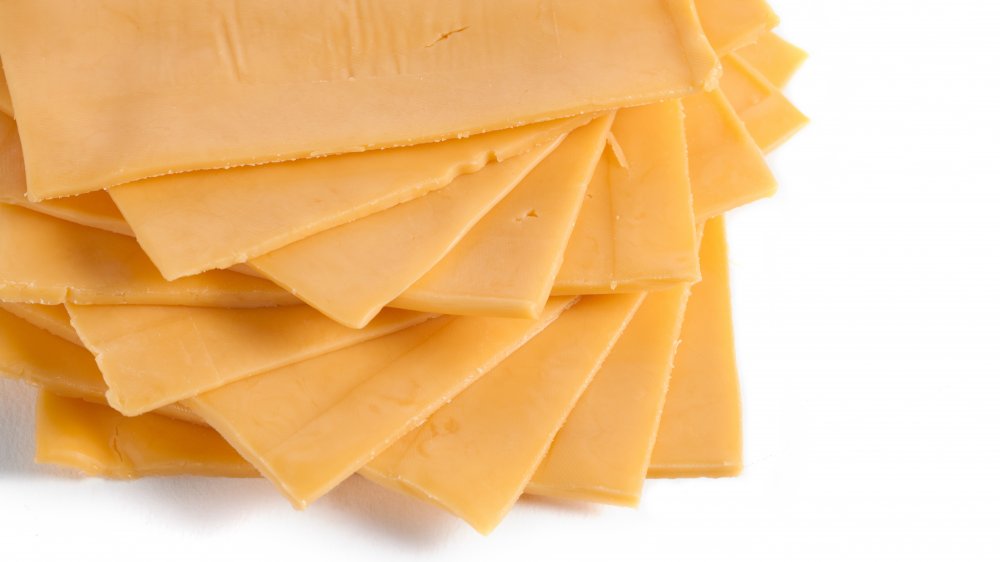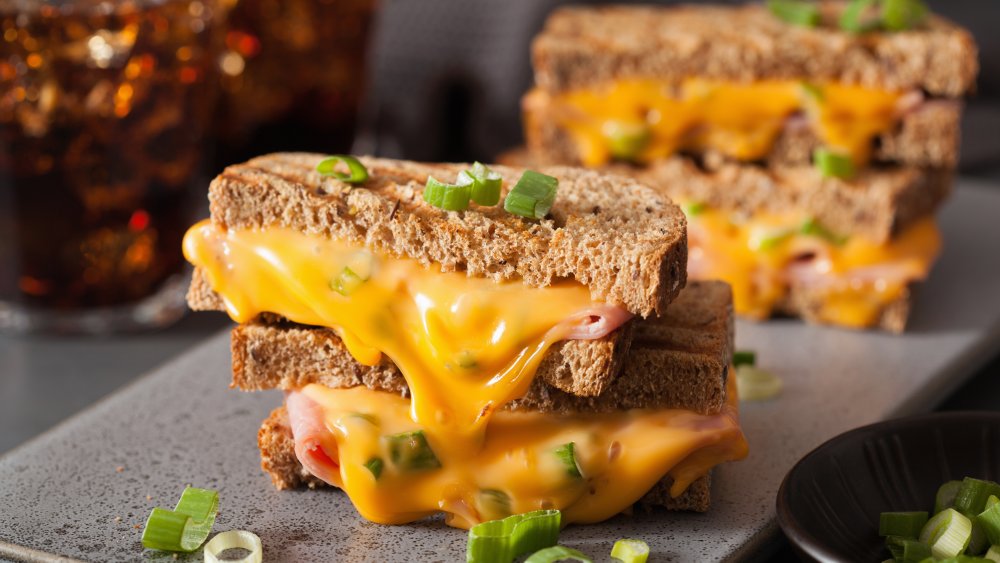This Is What's Really In American Cheese
What's orange, comes individually wrapped in plastic or shaved off a block at the deli counter, and tastes like heaven on a burger or in a grilled cheese sandwich? Points to you if you answered "American Cheese," a descendant of Yankee-made cheddar (aka Yankee Cheese) and once made with a blend of different cheeses like Colby and cheddar (via Spoon University).
Today, American Cheese isn't made with cheddar or Colby — in fact, Mental Floss and Spoon University both say American Cheese is not real cheese. Instead, it's known as processed cheese, or "cheese food." The concept and execution involved in making processed cheese was invented and patented by Robert L. Kraft in 1916, and by 1930, Spoon University says over 40 percent of cheese consumed in the U.S. came from Kraft. Today, the company is said to produce 7.2 billion Kraft Singles a year.
Is American cheese really cheese?
American cheese is made with a mix that includes milk, whey, milk fat, calcium phosphate (the calcium found in milk), salt, sodium citrate (a salt that keeps cheese creamy when it melts), sodium phosphate (another salt, this one used as a leavening agent), sorbic acid (a preservative), cheese culture (the bacteria that helps milk turn into cheese), enzymes, annatto extract (for color), and vitamin D3 (via Serious Eats).
And while that sounds like a serious chemical soup, the ingredients work together to give us the "cheese" we've known and loved since we were children. But our love isn't enough to lift Kraft Singles to the level where it can legally be considered called "cheese," since by the FDA's definition, a "cheese" needs to be made with at least 51 percent of the stuff... and well, Kraft Singles just isn't (via HuffPost).
If you're hankering after real American cheese, Mental Floss recommends Wisconsin's Pleasant Ridge Reserve, Upland Cheese's award-winning product, or Rogue River Blue, a funky blue cheese from Oregon. They've also called out Cowgirl Creamery's Mt. Tam from Northern California. And while they may be as tasty as their counterparts from Europe or Australia, just don't expect any of these cheeses to make a grilled cheese sandwich quite the same way a slice of Kraft American can do.

